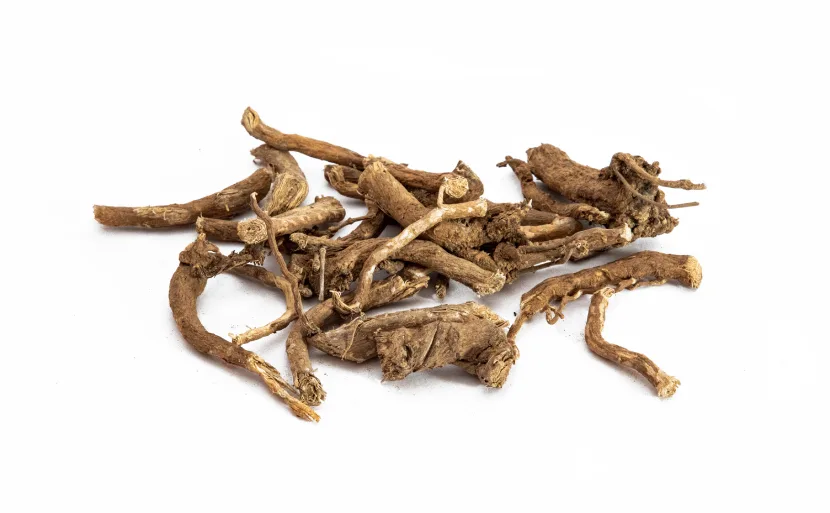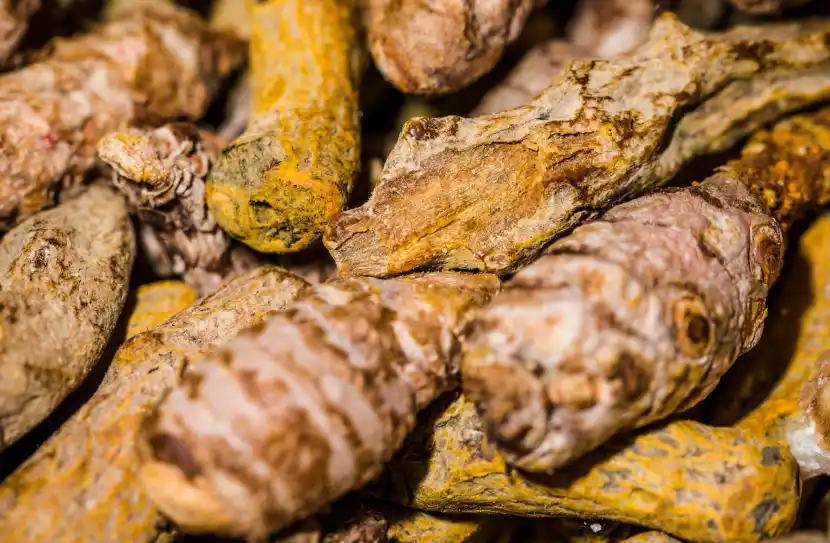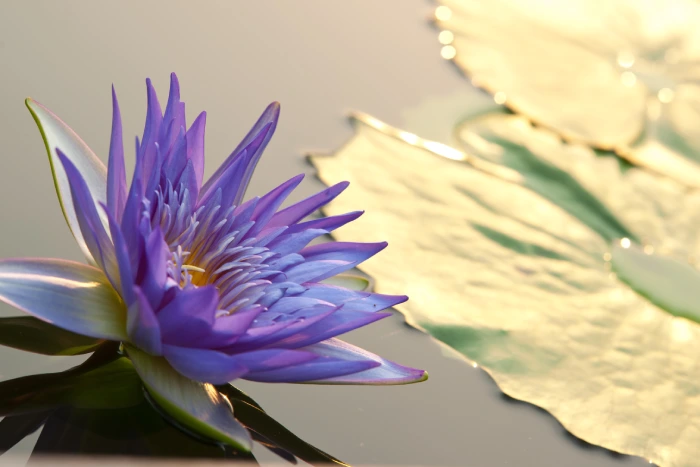Understanding Dong Quai: Origins and Traditional Use
Historical Background
Dong Quai (Angelica sinensis), often consumed as dong quai tea, has been a cornerstone of Traditional Chinese Medicine (TCM) for over 2,000 years. This herb, also known as “female ginseng” or “angelica root,” originated in the high-altitude regions of China, specifically in provinces like Gansu, Sichuan, and Yunnan. The plant’s root, which is harvested after three years of growth, is the primary part used in traditional medicine and modern supplements.
Cultural Significance
In Chinese culture, dong quai tea has historically been valued for its warming properties and its role in supporting women’s health. The herb’s name in Chinese, “Dang Gui,” means “state of return,” reflecting its traditional use in helping restore balance to the body. Beyond China, the herb has gained recognition throughout Asia, particularly in Japan and Korea, where it is incorporated into various traditional remedies.
Modern Applications
Today, dong quai tea and supplements have garnered international attention for their potential health benefits. The herb is available in various forms, including dong quai root powder, tablets, and most popularly, as a tea. Modern research continues to investigate the traditional uses of this herb, providing scientific context for its historical applications.

What is Dong Quai Tea and How is it Made?
Different Forms (Powder, Tablets, Tea)
While dong quai is available in multiple forms, dong quai tea remains one of the most popular and traditional methods of consumption. The herb can be found as:
- Whole dried roots
- Dong quai root powder for easy dissolution
- Concentrated dong quai tablets
- Pre-packaged tea bags Each form offers different advantages in terms of convenience, potency, and absorption rates.
Processing Methods
The preparation of authentic dong quai tea involves several careful steps:
- Root harvesting after three years of growth
- Careful cleaning and slicing
- Controlled drying process
- Optional smoking or wine curing (traditional methods) The processing method can significantly impact the final product’s therapeutic properties.
Quality Considerations
When selecting dong quai tea or supplements, quality indicators include:
- Harvesting location (high-altitude regions preferred)
- Processing methods (traditional vs. modern)
- Storage conditions
- Third-party testing certifications The best dong quai supplements typically come from established manufacturers who can verify their sourcing and processing methods.
The Science Behind Dong Quai: Active Compounds and Properties
The therapeutic potential of dong quai tea is attributed to its rich composition of bioactive compounds. These include:
- Ferulic acid: A potent antioxidant
- Ligustilide: The compound responsible for many of the herb’s therapeutic effects
- Polysaccharides: Supporting immune function
- Various vitamins and minerals, including vitamin B12, vitamin E, and iron
Modern research has begun to validate many traditional uses through scientific investigation, particularly in areas related to circulation and hormonal balance. Studies suggest that dong quai tea’s compounds may work synergistically to produce its beneficial effects.
Comprehensive Health Benefits of Dong Quai Tea
Reproductive Health Benefits
One of the most well-documented applications of dong quai tea is its potential support for reproductive health. Traditional practitioners have long recommended this herb for various reproductive concerns. While dong quai fertility benefits have been widely discussed, it’s important to note that research in this area is still ongoing. The herb’s effects on hormonal balance may contribute to its traditional use in supporting reproductive wellness.
Hormonal Balance Support
Regular consumption of dong quai tea may help support hormonal balance through various mechanisms. For those dealing with PCOS (Polycystic Ovary Syndrome), dong quai and PCOS management has become a topic of interest. Some studies suggest that dong quai’s compounds might help regulate certain hormonal pathways, though more research is needed to fully understand these mechanisms.
For individuals with endometriosis, dong quai endometriosis research has shown promising preliminary results. However, it’s crucial to consult with healthcare providers before using dong quai tea or supplements for these conditions.
Dong Quai for Different Demographics
Benefits for Women
Women have traditionally been the primary users of dong quai tea, particularly for reproductive health support. The herb’s potential benefits for women include:
- Menstrual cycle regulation
- Hormonal balance support
- General wellness promotion
When it comes to timing, a common question is “how long does it take dong quai to induce period?” While individual responses vary, traditional practitioners typically recommend consistent use for several weeks to observe potential effects.
Benefits for Men
Contrary to its reputation as a “female herb,” dong quai benefits for men have gained increasing attention. Dong quai benefits for males may include:
- Support for cardiovascular health
- Potential antioxidant properties
- Energy level support
Special Considerations for PCOS and Endometriosis
For individuals with PCOS or endometriosis, dong quai tea may offer supportive benefits when used as part of a comprehensive treatment plan. However, it’s essential to understand that dong quai is not a standalone treatment for these conditions. Research on dong quai and PCOS continues to evolve, with some studies suggesting potential benefits in managing certain symptoms.
Weight Management and Body Composition
Effects on Metabolism
The relationship between dong quai tea and metabolism has been a subject of interest, particularly regarding its potential effects on energy expenditure and nutrient absorption. Some users report positive experiences with dong quai for belly fat management, though it’s important to note that these effects are best achieved when combined with proper diet and exercise.
Impact on Belly Fat
While some dong quai weight loss reviews suggest positive outcomes, it’s crucial to maintain realistic expectations. The herb may support weight management through:
- Potential metabolic effects
- Circulation support
- Overall wellness promotion
Supporting Research
Current research on dong quai tea’s role in weight management is still in its early stages. While some studies show promising results, more research is needed to fully understand the mechanisms behind these potential benefits. It’s important to approach weight management holistically, considering diet, exercise, and lifestyle factors alongside any supplementation.
Complementary Herbs and Combinations
Dong Quai with Chasteberry
The combination of chasteberry and dong quai has gained attention for its potential synergistic effects. When dong quai tea is combined with chasteberry (Vitex), users often report enhanced benefits for hormonal balance. This dong quai and chasteberry combination is particularly popular among those seeking natural support for reproductive health. Research suggests that while each herb has its individual benefits, their combination may offer complementary effects.
Red Date Tea Combination
Another popular combination is dong quai and red date tea, which has deep roots in Traditional Chinese Medicine. This combination is believed to offer several benefits:
- Enhanced blood nourishment
- Improved energy levels
- Better absorption of active compounds
The dong quai red date tea combination is often recommended for its warming properties and potential synergistic effects. Traditional practitioners suggest that red dates help optimize the absorption and effectiveness of dong quai’s active compounds.
Other Beneficial Combinations
Beyond these common pairings, dong quai tea can be combined with various other herbs for targeted benefits. However, it’s essential to consult with healthcare providers before combining multiple herbs, as interactions may occur.
Proper Dosage and Administration
General Guidelines
Understanding proper dong quai dosage is crucial for safe and effective use. General dosage recommendations vary based on:
- Form of supplement (tea, powder, tablets)
- Individual health status
- Treatment goals
- Other medications or supplements being used
Timing Considerations
The timing of dong quai tea consumption can impact its effectiveness. Traditional practitioners often recommend:
- Taking it with meals to minimize digestive discomfort
- Consistent daily usage for optimal results
- Periodic breaks to prevent tolerance buildup
Form-Specific Instructions
Different forms of dong quai require specific administration guidelines:
- Tea: Typically steeped for 10-15 minutes in hot water
- Dong quai powder: Usually mixed with water or other beverages
- Tablets: Taken with meals according to package instructions

Safety and Precautions
Potential Side Effects
While dong quai tea is generally considered safe when used appropriately, potential side effects may include:
- Increased skin sensitivity to sunlight
- Mild digestive discomfort
- Possible interactions with blood-thinning medications
- Changes in menstrual flow
Contraindications
Certain individuals should avoid or use dong quai tea with caution:
- Pregnant women
- Those with bleeding disorders
- Individuals on blood-thinning medications
- People with hormone-sensitive conditions
The topic of dong quai and abortion has raised concerns, making it crucial for pregnant women to avoid this herb. While some historical sources discuss dong quai abortion practices, this use is not recommended due to safety concerns and ethical considerations.
Pregnancy Considerations
Special attention must be paid to pregnancy-related concerns. The relationship between dong quai tea and pregnancy has been extensively discussed in traditional medicine, but modern healthcare providers generally advise against its use during pregnancy due to potential risks and limited safety data.
Long-term use should be monitored by healthcare providers, and any unusual reactions should be reported promptly. It’s also important to source products from reputable manufacturers to ensure quality and safety.
Choosing the Right Dong Quai Supplement
Quality Indicators
When selecting herbal supplements, quality should be the primary consideration. The most reliable products typically feature:
- Standardized extracts
- Clear labeling of active compounds
- Third-party testing certificates
- Transparent sourcing information
- Good Manufacturing Practice (GMP) certification
Look for products that clearly state their concentration levels and provide detailed information about their manufacturing processes.
Top Product Features
Superior supplements often share common characteristics:
- Environmentally conscious harvesting practices
- Appropriate processing methods
- Optimal storage conditions
- Clear usage instructions
- Detailed ingredient lists
- Professional packaging that protects the herb’s potency
Form Selection Guide
Different forms suit different needs:
- Traditional root decoctions offer the most authentic experience
- Powdered extracts provide convenience and precise dosing
- Tablets offer standardized amounts for consistent usage
- Liquid extracts may provide enhanced absorption
Consider your lifestyle, preferences, and specific health goals when choosing the most suitable form.
Frequently Asked Questions
General Usage FAQs
Q: What’s the best time to consume this herb?
A: Traditional wisdom suggests taking it between meals for optimal absorption. However, individual responses may vary.
Q: Can I combine it with other supplements?
A: While many herbal combinations exist in traditional practice, always consult a healthcare provider about specific combinations.
Safety and Timing FAQs
Q: How long should I use this supplement?
A: Usage duration varies based on individual needs and health goals. Some practitioners recommend cycling use, while others suggest consistent long-term use under supervision.
Q: What should I monitor while using this herb?
A: Pay attention to:
- Energy levels
- Sleep patterns
- Digestive responses
- Any changes in existing health conditions
Results and Expectations
Q: How long before noticing effects?
A: Individual responses vary significantly. While some people report changes within weeks, others may need several months of consistent use.
Q: What are realistic expectations?
A: Results depend on various factors including:
- Individual health status
- Consistency of use
- Quality of product
- Overall lifestyle habits
Conclusion: Making an Informed Decision
Benefits Summary
The traditional use of this herb spans millennia, with applications in various aspects of health support. Modern research continues to investigate its potential benefits, while traditional knowledge provides context for its applications.
Considerations Before Use
Before incorporating any new supplement:
- Assess your specific health needs
- Consult with qualified healthcare providers
- Research product quality thoroughly
- Consider potential interactions with existing medications
- Evaluate cost-effectiveness for long-term use
Final Recommendations
Success with herbal supplementation often depends on:
- Choosing high-quality products
- Following proper usage guidelines
- Maintaining realistic expectations
- Taking a holistic approach to health
- Regular monitoring and adjustment as needed
Remember that herbal supplements work best as part of a comprehensive approach to health, including proper nutrition, regular exercise, adequate sleep, and stress management. While traditional uses are well-documented, individual responses can vary significantly.



